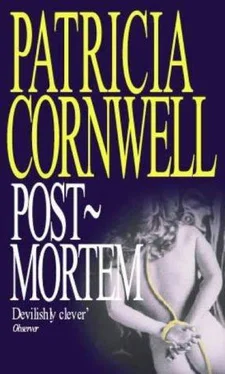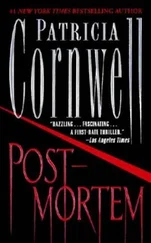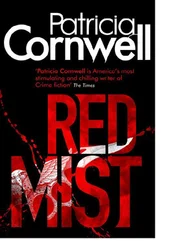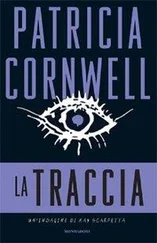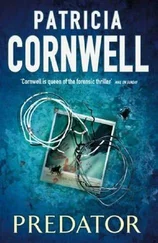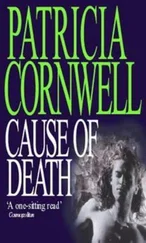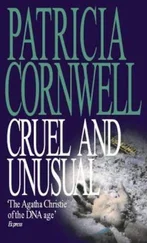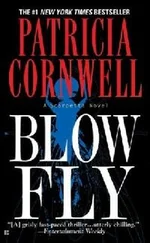Patricia Cornwell - Postmortem
Здесь есть возможность читать онлайн «Patricia Cornwell - Postmortem» весь текст электронной книги совершенно бесплатно (целиком полную версию без сокращений). В некоторых случаях можно слушать аудио, скачать через торрент в формате fb2 и присутствует краткое содержание. Жанр: Фантастика и фэнтези, на английском языке. Описание произведения, (предисловие) а так же отзывы посетителей доступны на портале библиотеки ЛибКат.
- Название:Postmortem
- Автор:
- Жанр:
- Год:неизвестен
- ISBN:нет данных
- Рейтинг книги:3 / 5. Голосов: 1
-
Избранное:Добавить в избранное
- Отзывы:
-
Ваша оценка:
- 60
- 1
- 2
- 3
- 4
- 5
Postmortem: краткое содержание, описание и аннотация
Предлагаем к чтению аннотацию, описание, краткое содержание или предисловие (зависит от того, что написал сам автор книги «Postmortem»). Если вы не нашли необходимую информацию о книге — напишите в комментариях, мы постараемся отыскать её.
Postmortem — читать онлайн бесплатно полную книгу (весь текст) целиком
Ниже представлен текст книги, разбитый по страницам. Система сохранения места последней прочитанной страницы, позволяет с удобством читать онлайн бесплатно книгу «Postmortem», без необходимости каждый раз заново искать на чём Вы остановились. Поставьте закладку, и сможете в любой момент перейти на страницу, на которой закончили чтение.
Интервал:
Закладка:
Oh, Lord. I groped for the appropriate response and couldn't come up with a thing. My mother's accusations began throbbing in some deep part of my psyche. My inadequacies. I had no children. I would have made an awful mother. "You should have been a man," my mother had said during one of our less productive encounters in recent history. "All work and ambition. It's not natural for a woman. You'll dry out like a chinch bug, Kay."
And during my emptiest moments when I felt the worst about myself, damn if I wouldn't see one of those chinch bug shells that used to litter the lawn of my childhood home. Translucent, brittle, dried out. Dead.
It wasn't something I would ordinarily do, pour a ten-year-old a glass of wine.
I took her to her room and we drank in bed. She asked me questions impossible to answer.
"Why do people hurt other people?" and "Is it a game for him? I mean, does he do it for fun, sort of like MTV? They do things like that on MTV, but it's make-believe. Nobody gets hurt. Maybe he doesn't mean to hurt them, Auntie Kay."
"There are some people who are evil," I quietly replied. "Like dogs, Lucy. Some dogs bite people for no reason. There's something wrong with them. They're bad and will always be bad."
"Because people were mean to them first. That's what makes them bad."
"In some instances, yes," I told her. "But not always. Sometimes there isn't a reason. In a way, it doesn't matter. People make choices. Some people would rather be bad, would rather be cruel. It's just an ugly, unfortunate part of life."
"Like Hitler," she muttered, taking a swallow of wine.
I began stroking her hair.
She rambled on, her voice thick with sleep, "Like Jimmy Groome, too. He lives on our street and shoots birds with his BB gun, and he likes to steal bird eggs out of nests and smash them on the road and watch the baby birds struggle. I hate him. I hate Jimmy Groome. I threw a rock at him once and hit him when he was riding by on his bike. But he doesn't know it was me because I was hiding behind the bushes."
I sipped wine and continued stroking her hair.
"God won't let anything happen to you, will He?" she asked.
"Nothing is going to happen to me, Lucy. I promise."
"If you pray to God to take care of you, He does, doesn't He?"
"He takes care of us." Though I wasn't sure I believed it.
She frowned. I'm not sure she believed it either. "Don't you ever get scared?"
I smiled. "Everybody gets scared now and then. I'm perfectly safe. Nothing's going to happen to me."
The last thing she mumbled before drifting off was "I wish I could always be here, Auntie Kay. I want to be just like you."
Two hours later, I was upstairs and still wide-awake and staring at a page in a book without really seeing the words when the telephone rang.
My response was Pavlovian, a startled reflex. I snatched up the receiver, my heart thudding. I was expecting, fearing, Marino's voice, as if last night were starting all over again.
"Hello."
Nothing.
"Hello?"
In the background I could hear the faint, spooky music I associated with early-morning foreign movies or horror films or the scratchy strains of a Victrola before the dial tone cut it off.
"Coffee?"
"Please," I said.
This sufficed for a "Good morning."
Whenever I stopped by Neils Vander's lab, his first word of greeting was "Coffee?"
I always accepted. Caffeine and nicotine are two vices I've readily adopted.
I wouldn't think of buying a car that isn't as solid as a tank, and I won't start the engine without fastening my seatbelt. There are smoke alarms throughout my house, and an expensive burglar alarm system. I no longer enjoy flying and opt for Amtrak whenever possible.
But caffeine, cigarettes and cholesterol, the grim reapers of the common man - God forbid I should give them up. I go to a national meeting and sit at a banquet with three hundred other forensic pathologists, the world's foremost experts in disease and death. Seventy-five percent of us don't jog or do aerobics, don't walk when we can ride, don't stand when we can sit, and assiduously avoid stairs or hills unless they're on the decline. A third of us smoke, most of us drink, and all of us eat as if there is no tomorrow.
Stress, depression, perhaps a greater need for laughter and pleasure because of the misery we see - who can be sure of the reason? One of my more cynical friends, an assistant chief in Chicago, likes to say, "What the hell. You die. Everybody dies. So you die healthy. So what?"
Vander went to the drip coffee machine on the counter behind his desk and poured two cups. He had fixed my coffee countless times and could never remember I drink it black.
My ex-husband never remembered either. Six years I lived with Tony and he couldn't remember that I drink my coffee black or like my steaks medium-rare, not as red as Christmas, just a little pink. My dress size, forget it. I wear an eight, have a figure that will accommodate most anything, but I can't abide fluff, froth and frills. He always got me something in a six, usually lacy and gauzy and meant for bed. His mother's favorite color was spring green. She wore a size fourteen. She loved ruffles, hated pullovers, preferred zippers, was allergic to wool, didn't want to bother with anything that had to be dry-cleaned or ironed, had a visceral antagonism toward anything purple, deemed white or beige impractical, wouldn't wear horizontal stripes or paisley, wouldn't have been caught dead in Ultrasuede, believed her body wasn't compatible with pleats and was quite fond of pockets the more the better. When it came to his mother, Tony would somehow get it right.
Vander dumped the same heaping teaspoons of whitener and sugar into my cup as he dumped into his own.
Typically, he was disheveled, his wispy gray hair wild, his voluminous lab coat smeared with black fingerprint powder, a spray of ballpoint pens and felt-tip markers protruding from his ink-stained breast pocket. He was a tall man with long, bony extremities and a disproportionately round belly. His head was shaped remarkably like a light bulb, his eyes a washed-out blue and perpetually clouded by thought.
My first winter here he stopped by my office late one afternoon to announce it was snowing. A long red scarf was wrapped around his neck, and pulled over his ears was a leather flight helmet, possibly ordered from a Banana Republic catalogue and absolutely the most ridiculous winter hat I'd ever seen. I think he would have looked perfectly at home inside a Fokker fighter plane. "The Flying Dutchman," we appropriately called him around the office. He was always in a hurry, flying up and down the halls, his lab coat flapping around his legs.
"You saw the papers?" he asked, blowing on his coffee.
"The whole blessed world saw the papers," I dismally replied.
Sunday's front page was worse than Saturday evening's. The banner headline ran across the entire width of the top of the page, the letters about an inch high. The story included a sidebar about Lori Petersen and a photograph that looked as if it came from a yearbook. Abby Turnbull was aggressive enough, if not indecent, to attempt an interview with Lori Petersen's family, who lived in Philadelphia and "were too distraught to comment."
"It sure as hell isn't helping us any," Vander stated the obvious. "I'd like to know where the information's coming from so I could string a few people up by their thumbs."
"The cops haven't learned to keep their mouths shut," I told him. "When they learn to zip their lips, they won't have leaks to bitch about anymore."
"Well, maybe it's the cops. Whatever the case, the stuff's making my wife crazy. I think if we lived in the city, she'd make us move today."
He went to his desk, which was a jumble of computer printouts, photographs and telephone messages. There was a quart beer bottle and a floor tile with a dried bloody shoe print, both inside plastic bags and tagged as evidence. Randomly scattered about were ten small jars of formalin, each containing a charred human fingertip anatomically severed at the second joint. In cases of unidentified bodies that are badly burned or decomposed, it isn't always possible to get prints by the usual method. Incongruously stationed in the midst of this macabre mess was a bottle of Vaseline Intensive Care lotion.
Читать дальшеИнтервал:
Закладка:
Похожие книги на «Postmortem»
Представляем Вашему вниманию похожие книги на «Postmortem» списком для выбора. Мы отобрали схожую по названию и смыслу литературу в надежде предоставить читателям больше вариантов отыскать новые, интересные, ещё непрочитанные произведения.
Обсуждение, отзывы о книге «Postmortem» и просто собственные мнения читателей. Оставьте ваши комментарии, напишите, что Вы думаете о произведении, его смысле или главных героях. Укажите что конкретно понравилось, а что нет, и почему Вы так считаете.
